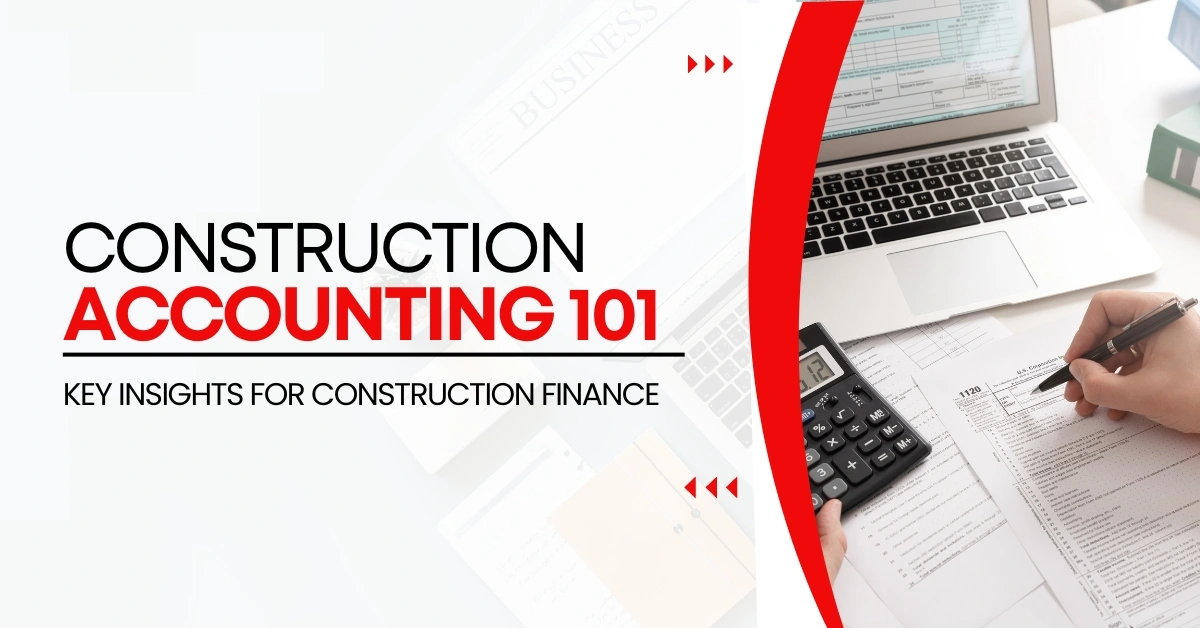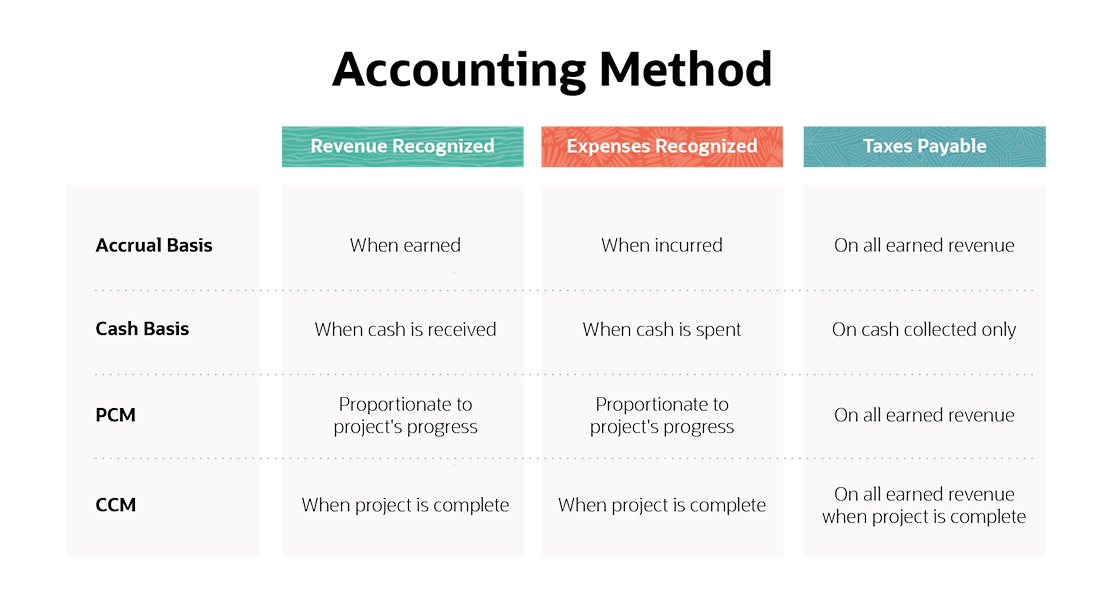Construction Accounting: Tools and Techniques to Optimize Your Financial Operations
Construction Accounting: Tools and Techniques to Optimize Your Financial Operations
Blog Article
Trick Providers Offered in Building And Construction Audit to Improve Financial Oversight
In the world of building and construction bookkeeping, crucial solutions such as project expense estimation, spending plan management, and money circulation analysis play an essential duty in improving monetary oversight. Recognizing these nuances can substantially influence the performance of economic oversight in building and construction projects.
Project Expense Estimation
Effective job expense estimation is a crucial component of effective construction accountancy services, as it straight affects budgeting and economic planning (construction accounting). Exact expense price quotes provide a detailed summary of the financial requirements for a building task, making it possible for stakeholders to make enlightened choices pertaining to resource allowance and job expediency
A complete price estimation procedure incorporates various components, including labor, materials, equipment, expenses, and contingencies. By evaluating historic information and present market patterns, building and construction accountants can create reasonable quotes that show real task prices. This logical technique not just help in securing financing however likewise enhances openness and accountability among all events involved.
Furthermore, exact expense estimation offers as a structure for surveillance and controlling expenses throughout the job's lifecycle. By establishing a clear standard, construction accountants can determine discrepancies in between approximated and real prices, permitting for prompt adjustments and interventions.
Ultimately, reliable project price estimation not just helps with smoother project implementation yet also reinforces the overall monetary health of building and construction businesses, guaranteeing they stay affordable in an increasingly dynamic sector. This tactical strategy highlights the importance of proficient specialists in providing reliable and exact price price quotes.
Budget Plan Monitoring
In the world of building audit services, budget plan management plays a crucial duty in making certain that tasks stay monetarily viable and on course. Effective budget plan administration involves the methodical preparation, monitoring, and controlling of task expenses to straighten with economic purposes. It begins with the creation of a detailed budget plan that properly shows the expected prices of labor, materials, devices, and expenses based on thorough task cost estimate.
As soon as the spending plan is developed, continuous surveillance is important. This consists of routine assessments of actual expenditures against the budgeted figures, enabling timely identification of discrepancies. By carrying out tools and software program tailored for construction audit, job managers can generate real-time reports that help with informed decision-making.
Furthermore, aggressive spending plan administration makes it possible for stakeholders to readjust monetary allowances and resources as required, advertising adaptability in reaction to unexpected obstacles. This adaptability is vital in the construction market, where project extents can regularly change. Ultimately, robust budget plan management not just reinforces financial liability yet additionally boosts general task efficiency, guaranteeing successful conclusion within the alloted financial specifications.
Cash Flow Analysis
Cash money flow evaluation functions as an essential part of building accountancy, enabling task managers to preserve a clear understanding of the inflow and outflow of funds throughout the job lifecycle. This logical process enables for the identification of possible cash money scarcities or surpluses, equipping managers to make enlightened choices concerning budgeting and source appropriation.
By meticulously tracking cash inflows from client settlements, loans, and various other profits resources, alongside keeping an eye on outflows such as labor, products, and overhead expenditures, project managers can develop a comprehensive cash circulation projection - construction accounting. This projection not just he has a good point aids in forecasting future monetary positions but likewise assists in determining trends that may affect task stability
Regular capital analysis helps with prompt interventions, permitting task managers to resolve economic obstacles before they escalate. This positive technique can alleviate risks connected with postponed settlements or unforeseen expenditures, eventually bring about even more successful job completions. Effective cash money flow management contributes to maintaining solid connections with subcontractors and distributors by guaranteeing timely repayments.
Essentially, money circulation evaluation is an important tool in construction bookkeeping, driving monetary stability and operational performance throughout the duration of construction jobs.
Regulatory Compliance Support
Regulative compliance support is crucial for building firms browsing the complex landscape of industry site guidelines and criteria. The building and construction sector undergoes a myriad of neighborhood, state, and government regulations, consisting of security standards, labor regulations, and ecological guidelines. Non-compliance can result in considerable penalties, hold-ups, and reputational damage.
A robust compliance support group assists firms stay informed concerning appropriate guidelines and makes sure that they apply needed policies and procedures. This consists of monitoring adjustments in legislation, supplying training for workers, and carrying out normal audits to evaluate conformity levels. Building accounting professionals play a critical role in this process, offering know-how to analyze regulations and straighten economic techniques appropriately.
Additionally, governing compliance assistance encompasses the prep work and entry of required documents, such as tax filings and reporting for labor criteria. By establishing an aggressive compliance technique, building and construction firms can mitigate dangers related to non-compliance, improve operational performance, and foster a society of accountability.
Eventually, effective regulative compliance support not only safeguards a building firm's economic health and wellness yet likewise reinforces its credibility in the sector, positioning it for lasting development and success.

Financial Coverage and Insights
While navigating the intricacies of the construction sector, exact economic coverage and informative evaluation are important for educated decision-making. Building projects commonly include considerable resources financial investment and varying expenses, making it crucial for stakeholders to have accessibility to timely and clear economic information. Comprehensive economic records, including profit and loss statements, money circulation forecasts, and annual report, provide a snapshot of a business's financial wellness and efficiency.
Moreover, tailored understandings derived from these records aid supervisors determine trends, analyze project earnings, and make strategic adjustments to improve operational efficiency. Trick performance signs (KPIs) specific to building and construction-- such as task margins, labor costs, and overhanging proportions-- use important standards for examining success and forecasting future efficiency.
Additionally, regular economic reporting allows compliance with legal try this obligations and fosters openness with stakeholders and capitalists. By leveraging sophisticated bookkeeping software program and information analytics, building companies can enhance their economic oversight, allowing them to navigate unpredictabilities a lot more effectively. Ultimately, durable financial coverage and workable understandings encourage building business to make enlightened decisions that promote development and sustainability in a highly open market.
Verdict

In the realm of building audit, key solutions such as task cost estimation, budget management, and cash money flow evaluation play a critical duty in boosting monetary oversight. Inevitably, durable spending plan monitoring not only bolsters economic accountability but additionally enhances general job performance, guaranteeing successful completion within the assigned financial specifications.

Report this page